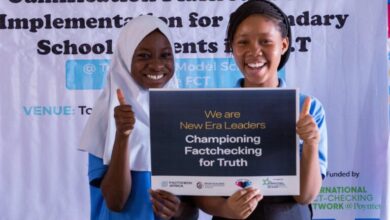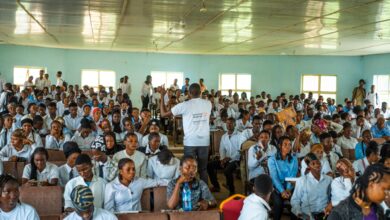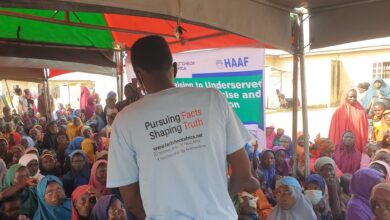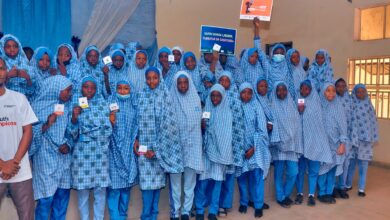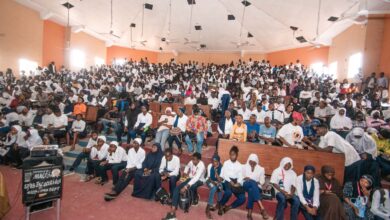Kadassaka and Kyadawa Communities Benefit from FactCheckAfrica’s Sensitization on Misinformation and Fact-Checking
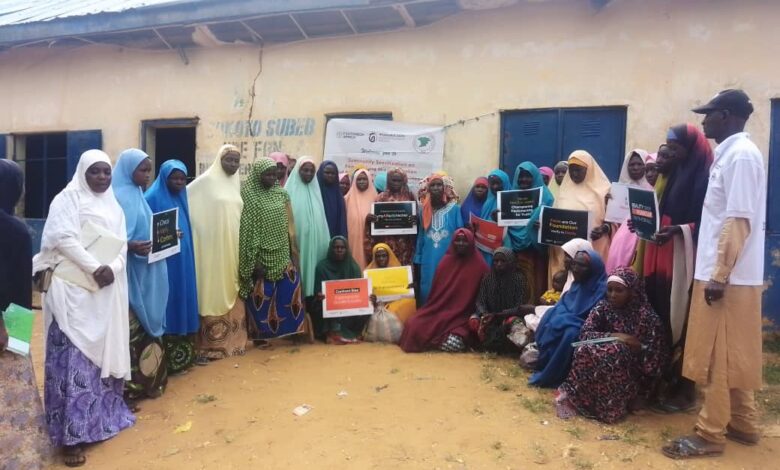
By Oluwaseye Ogunsanya
Kadassaka and Kyadawa communities in Gada Local Government Area of Sokoto State have taken steps to combat the dangers of misinformation through a sensitisation programme organised by FactCheckAfrica.
The initiative, carried out in collaboration with the Productive Youths Development Initiative and supported by the International Fact-Checking Network (IFCN), sought to raise awareness of fact-checking techniques and the harmful effects of false information.
Speaking at the events, Zayyanu Bello, the facilitator, emphasised the significance of the outreach. “The aim is to sensitise the communities on what disinformation is and how they can correctly spot misinformation and disinformation,” he said.
The sensitisation in Kadassaka, held on October 6, 2024, drew participants of all ages. The discussions highlighted the role misinformation has played in fueling domestic violence and divorce cases in the community. “Misinformation has led to divorces and violence at homes in the community, and young women and girls are culpable in this menace,” Bello noted.
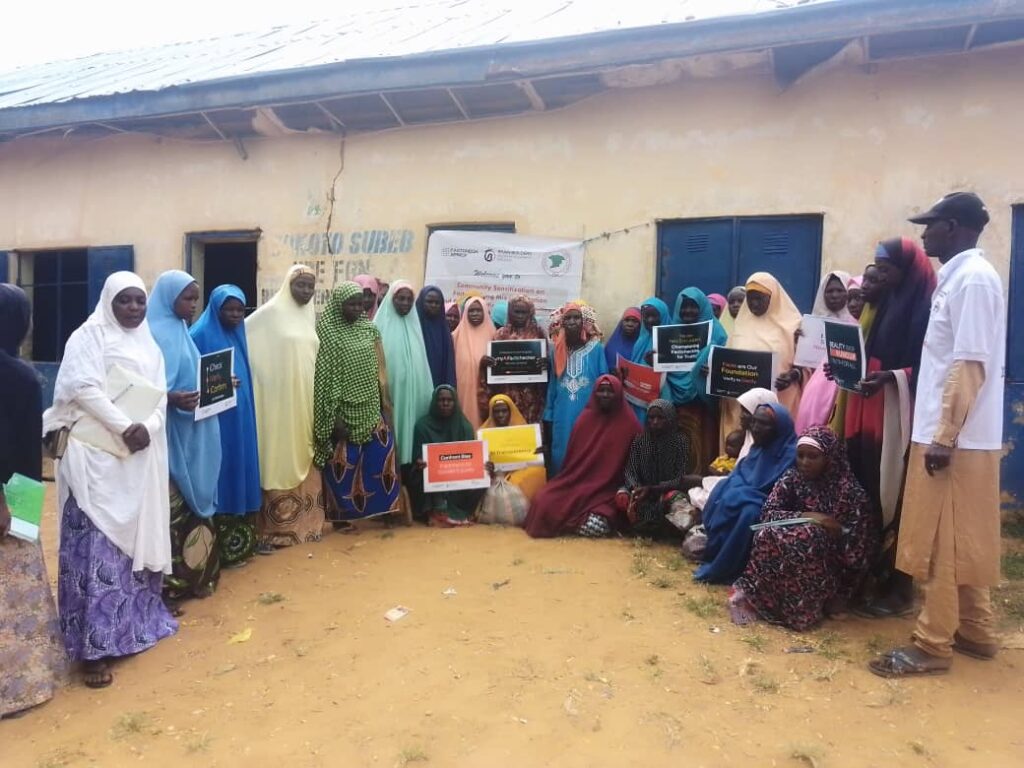
In his presentation, Mallam Jamilu, one of the facilitators, defined fact-checking as a method to verify the integrity of unsettled reports and information. According to him, unchecked information could result in chaos and loss of lives, he cited the recent incident in the Gada community. Addressing participants, he asked what they understood by misinformation and disinformation. When responses revealed a lack of clarity, he explained: “Misinformation is false or inaccurate information—getting the facts wrong. Disinformation is false information deliberately intended to mislead—intentionally misstating the facts.”
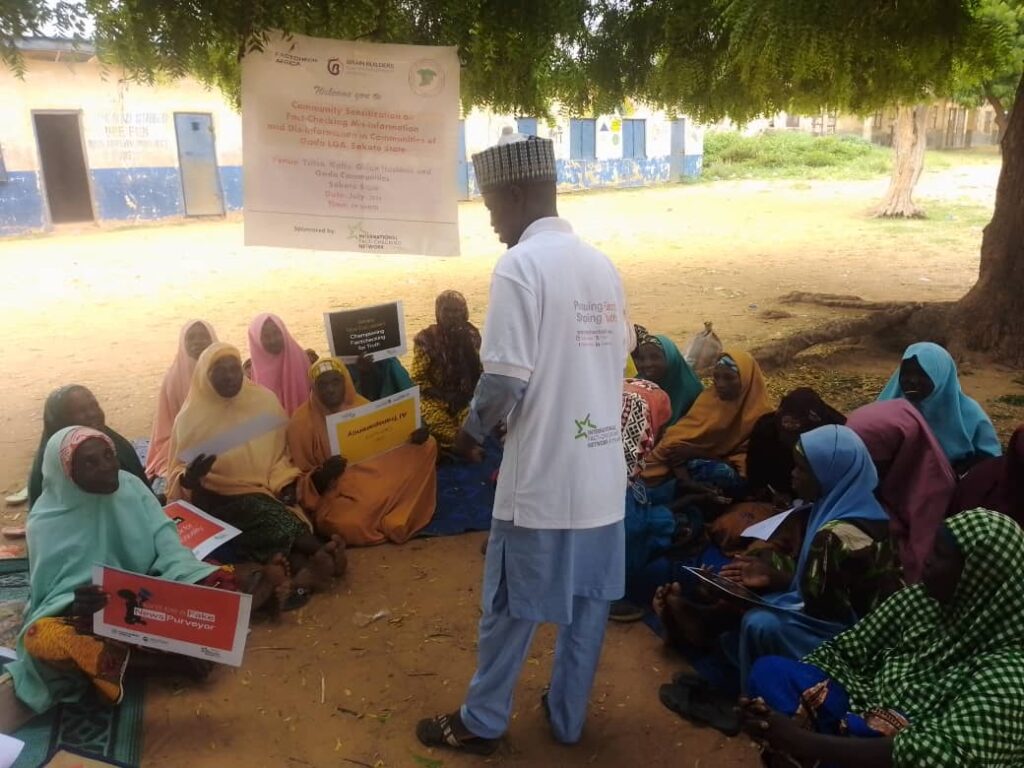
Participants appreciated the explanation, and actively contributed examples of similar incidents in neighboring villages. The interactive session deepened their understanding of the topic and its relevance to their community.
In Kyadawa, the sensitisation took place on October 5, 2024, with over 50 attendees. Alhaji Isa Bako, a representative of the traditional leader, welcomed the initiative, describing it as timely. “Our community has recently witnessed the harmful effects of misinformation during a market day stampede caused by false rumors,” he said.
One of the presenters stressed the importance of fact-checking, saying, “Misinformation is false or inaccurate information—getting the facts wrong. Disinformation is false information deliberately intended to mislead.”
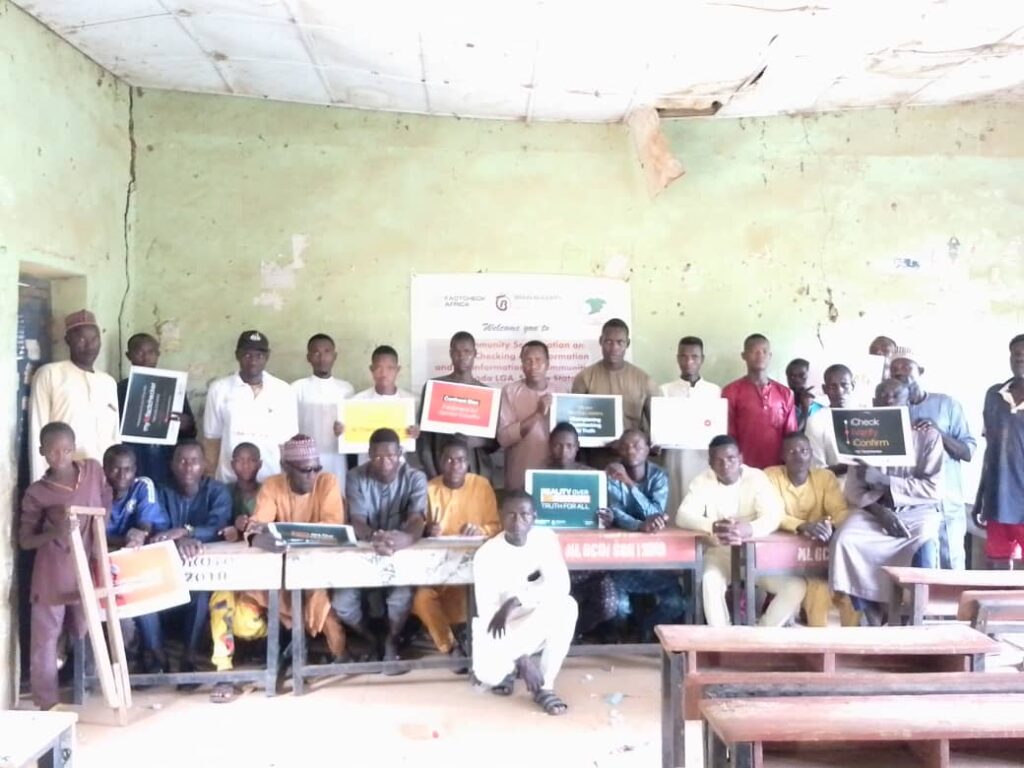
The facilitators provided participants with tools and techniques for identifying and combating misinformation. They broke down its categories, including satire, false context, impostor content, manipulated content, and fabricated content, and explained how each type can lead to chaos if left unchecked.
On the other hand, participants actively engaged during the sessions, sharing personal experiences and raising pertinent concerns. They also requested hotlines to verify information and clearer channels for addressing misinformation within their community.
Indeed, the feedback from attendees reflected appreciation for the initiative, with many pledging to disseminate the knowledge gained to their families and neighbors. The sensitisation programmes in both communities marked an essential step in increasing informed and resilient communities equipped to tackle the challenges of misinformation.
